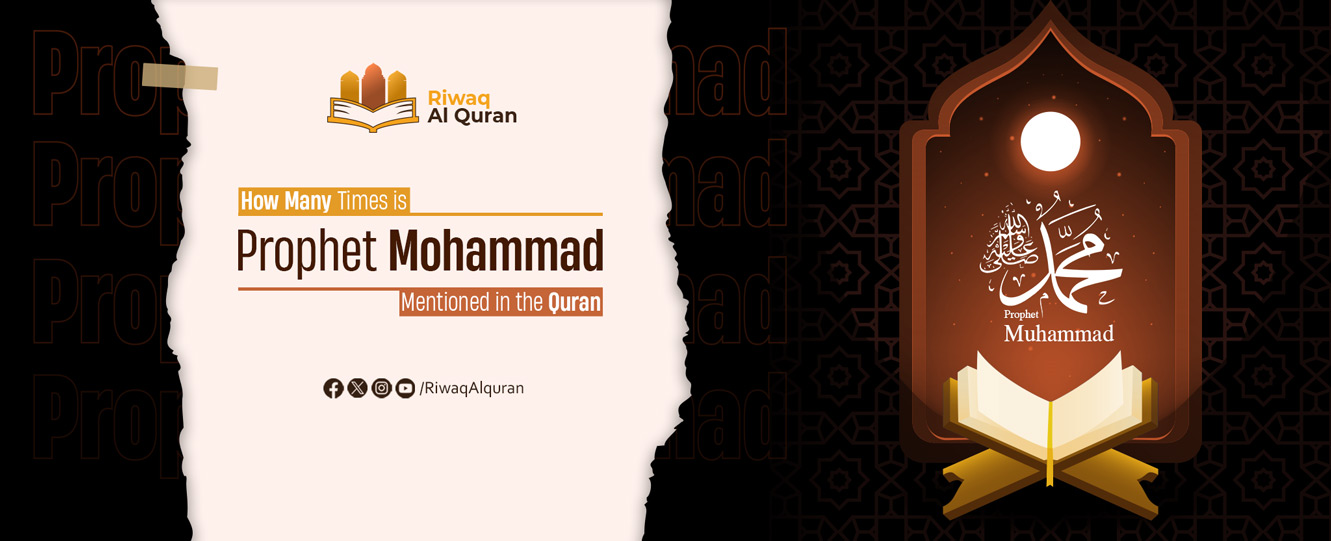Prophet Muhammad (peace be upon him) is the final messenger of Islam and holds a central role in the Quran. He is described as the Seal of the Prophets, and his life exemplifies the highest moral character. The Quran repeatedly highlights his mission, character, and the divine message he delivered over 23 years.
Understanding Prophet Muhammad in the Quran is essential for every Muslim. His words, actions, and conduct form a complete guide for Islamic life. From being a mercy to mankind to the recipient of the Quran, his role is both spiritual and practical for all believers.
Here, we explore some of the examples:
Table of Contents
The Chosen Messenger
In the Quran, Prophet Muhammad is repeatedly referred to as the chosen messenger of Allah. Surah Al-A’raf (7:158) states:
“Say, [O Muhammad], ‘O mankind, indeed I am the Messenger of Allah to you all…'”
This verse emphasizes his universal message to humanity, indicating that his prophethood is not confined to a particular group or nation.
The Mercy to Mankind
Prophet Muhammad’s compassion and mercy are highlighted throughout the Quran. Surah Al-Anbiya (21:107) declares:
“And We have not sent you, [O Muhammad], except as a mercy to the worlds.”
This verse underscores his role as a source of mercy not only for Muslims but for all of creation, reflecting the universal scope of his mission.
The Exemplar of Moral Virtues
The Quran presents Prophet Muhammad as the epitome of moral virtues and ethical conduct. Surah Al-Qalam (68:4) describes his character, stating:
“And indeed, you are of a great moral character.”
This acknowledgment underscores his impeccable character, which serves as a model for Muslims to emulate in their personal and social lives.
The Warner and Bearer of Glad Tidings
Prophet Muhammad is depicted as both a warner and a bearer of glad tidings in the Quran. Surah Al-Furqan (25:1) states:
“Blessed is He who sent down the Criterion upon His Servant that he may be to the worlds a warner.”
This verse highlights his role in conveying the message of Islam and warning people of the consequences of disbelief, while also bringing glad tidings to those who believe and follow the guidance.
The Finality of Prophethood
Islam teaches that Prophet Muhammad is the final prophet and messenger of Allah. Surah Al-Ahzab (33:40) states:
“Muhammad is not the father of [any] one of your men, but [he is] the Messenger of Allah and last of the prophets.”
This verse emphasizes the finality of prophethood with the advent of Muhammad, underscoring the completeness and perfection of the Islamic message.
The Quranic Revelation
The Quran, believed to be the literal word of God, was revealed to Prophet Muhammad over approximately 23 years. Surah Al-Qiyamah (75:16-19) describes the process of revelation, stating:
“Move not your tongue with it, [O Muhammad], to hasten with the recitation of the Qur’an. Indeed, upon Us is its collection [in your heart] and [to make possible] its recitation. So when We have recited it [through Gabriel], then follow its recitation. Then upon Us is its clarification [to you].”
This passage shows the divine transmission of the Quranic verses to Prophet Muhammad, highlighting his pivotal role in conveying the message to humanity.
The Role of the Sunnah
The Sunnah, comprising the sayings, actions, and approvals of Prophet Muhammad, is considered an essential source of guidance for Muslims. Surah Al-Ahzab (33:21) emphasizes the exemplary nature of Prophet Muhammad’s conduct, stating:
“There has certainly been for you in the Messenger of Allah an excellent pattern for anyone whose hope is in Allah and the Last Day and [who] remembers Allah often.”
This verse underscores the importance of following the Sunnah as a means to attain righteousness and draw closer to Allah.
Riwaq Al Quran Academy is dedicated to helping you embrace the profound teachings of the Prophet Muhammad through our diverse range of courses. Whether you’re looking to deepen your understanding of the Quran, master the Arabic language, or explore Islamic studies, our academy provides the guidance and resources you need. Join us to enrich your spiritual journey and connect with the timeless wisdom exemplified by the Prophet Muhammad.
We offer several courses such as:
- Online courses for kids.
- Online Quran classes for kids and adults.
- Online Arabic courses
- Online Ijazah courses
- Online Islamic Studies courses.
Conclusion:
The Quran clearly establishes Prophet Muhammad as the chosen messenger, a role model, and the final prophet. His mission was universal, his character unmatched, and his legacy continues to guide Muslims today through the Quran and Sunnah.
Studying his mentions in the Quran strengthens one’s faith and deepens the understanding of Islam. At Riwaq Al Quran, our structured courses help you explore the life and role of the Prophet Muhammad through the Quran, Sunnah, and authentic teachings. Join us to begin your journey of learning and transformation.


































